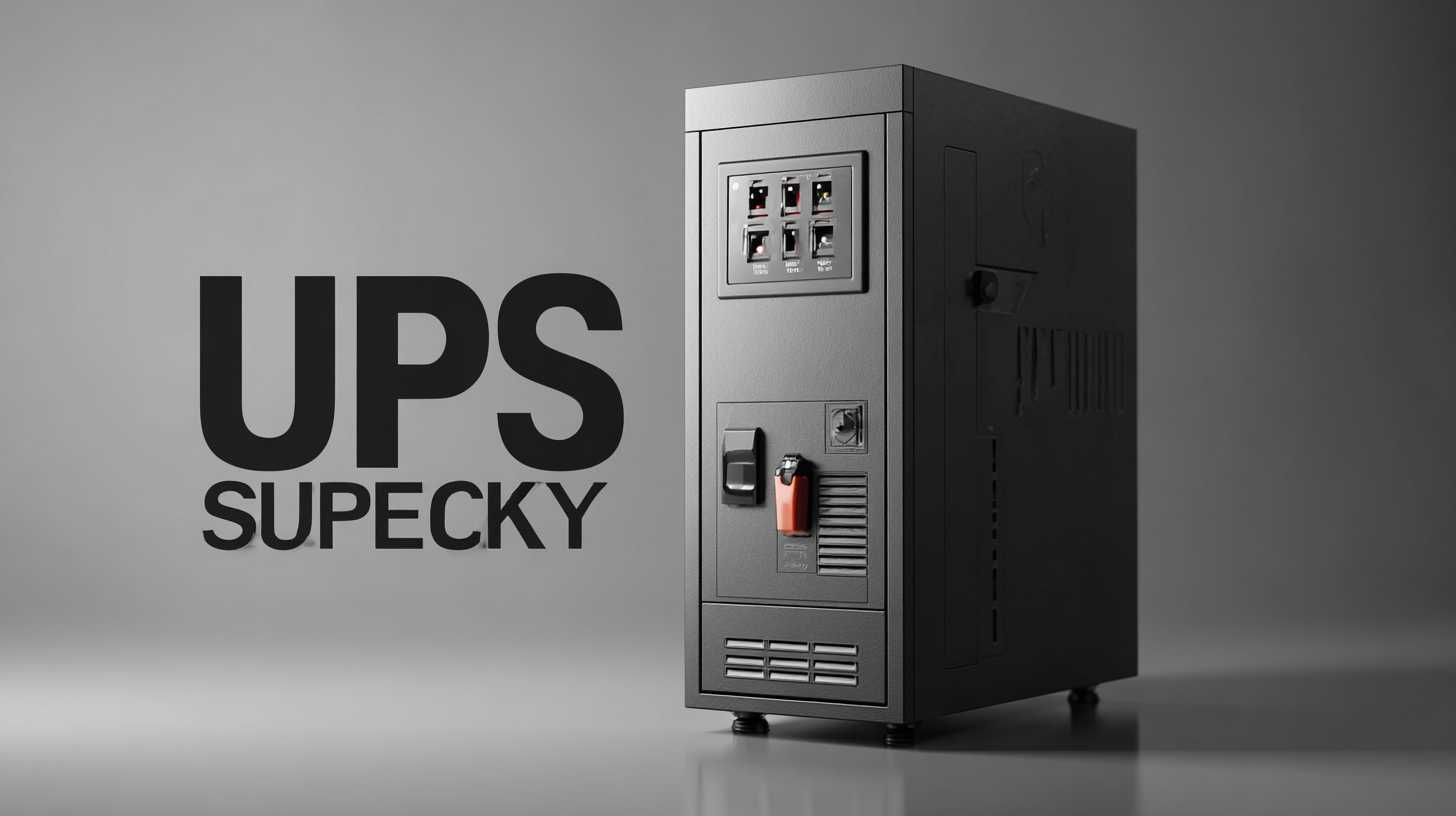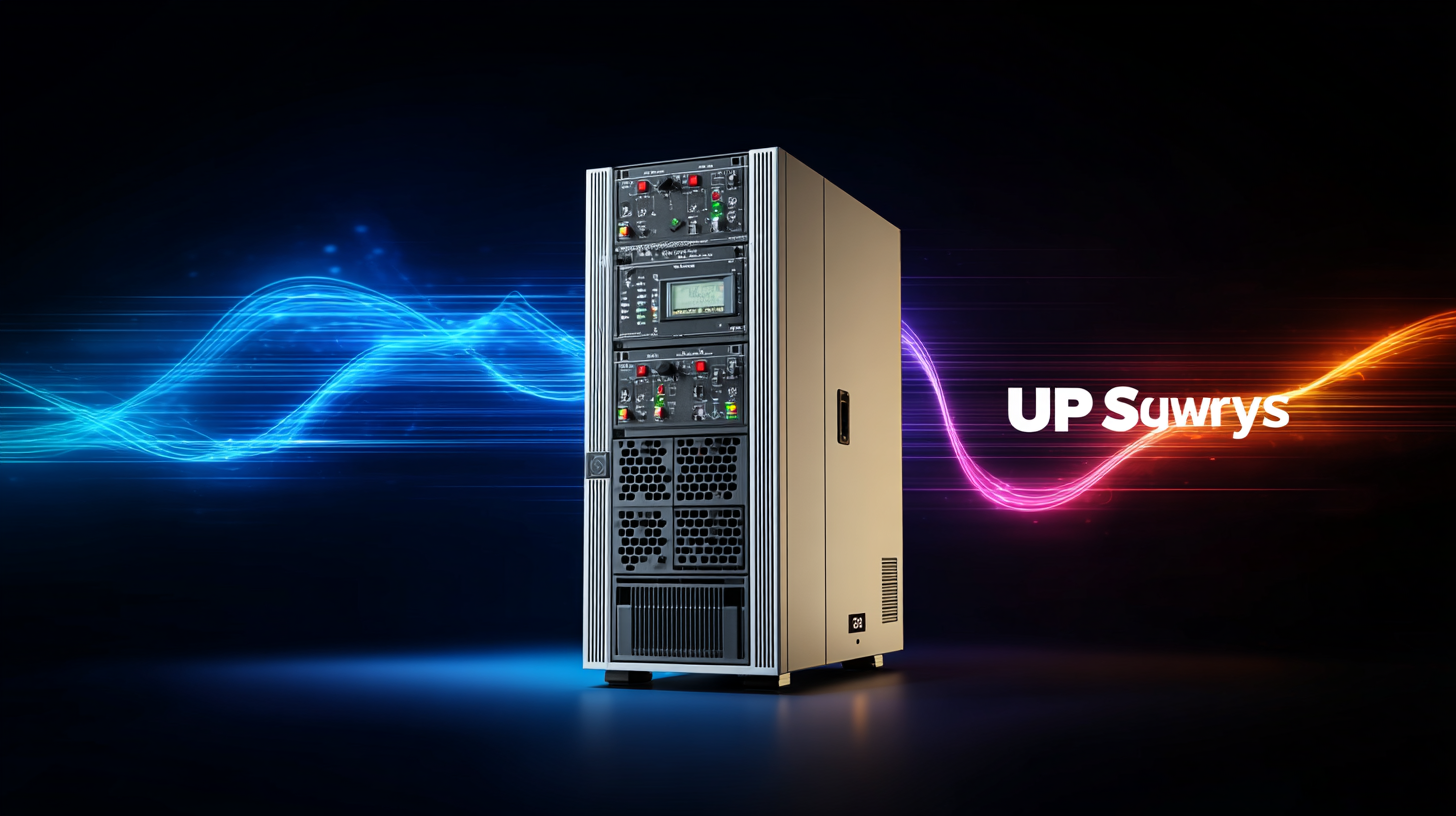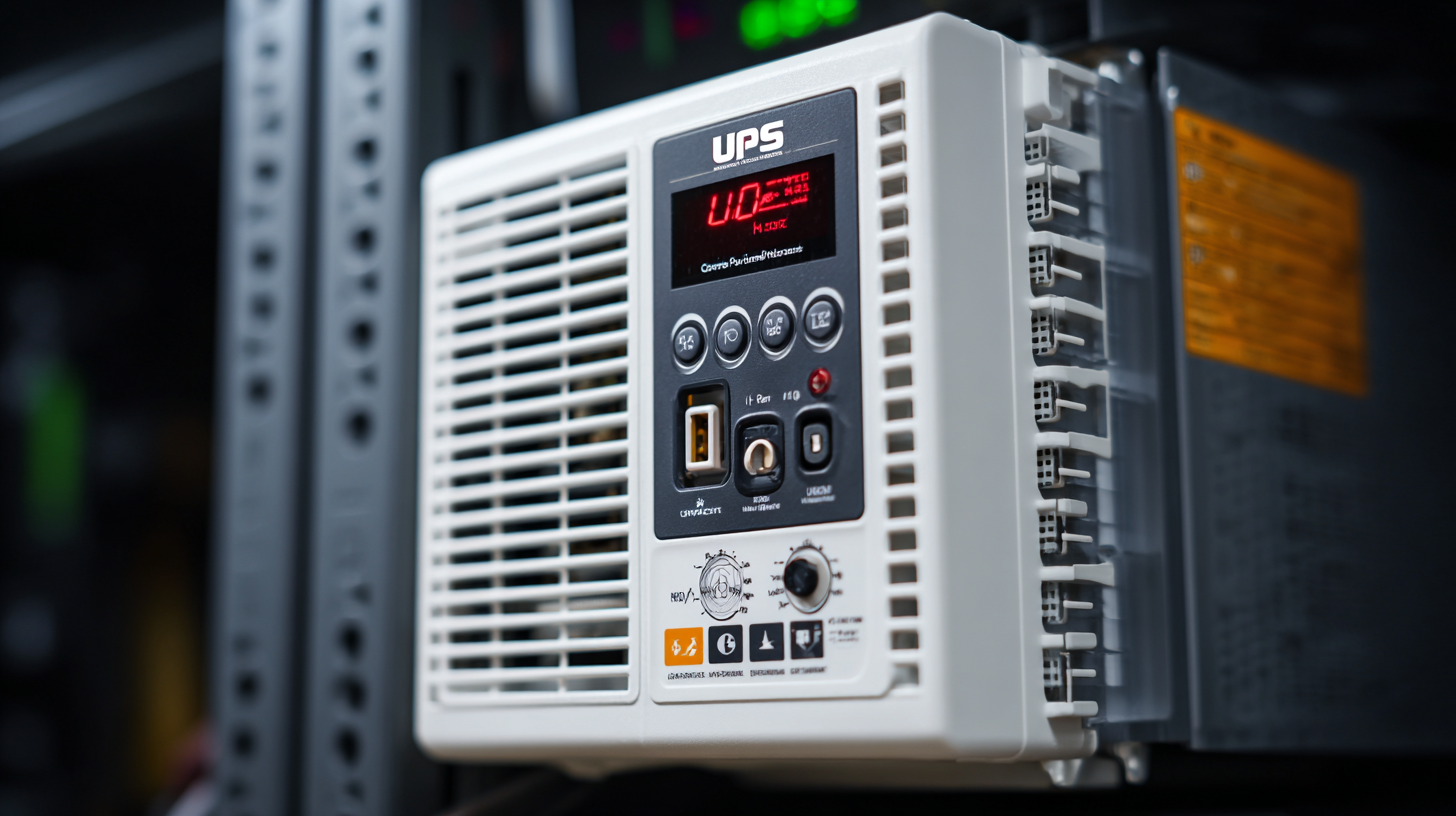Blog
Unlock the Full Potential of Your Business with the Best Ups Power Supply Technical Specs
In today's fast-paced digital landscape, ensuring uninterrupted power supply is crucial for maintaining business continuity and operational efficiency. The UPS power supply market has seen significant growth, projected to reach a value of $12.13 billion by 2026, growing at a CAGR of 5.12% from 2021 to 2026, according to a recent report by Mordor Intelligence. This trend highlights the increasing reliance on advanced UPS systems to protect critical infrastructure and data from power surges and outages. As businesses worldwide strive to enhance their resilience, optimizing the technical specifications of UPS power supplies becomes essential for unlocking their full potential. This blog will explore the key technical specs of UPS systems and how they can empower businesses, particularly emphasizing how "Made in China" products are winning global respect through outstanding quality and innovation.

Understanding the Importance of UPS in Modern Business Operations
In today’s fast-paced business environment, an
uninterruptible power supply (UPS) is crucial for maintaining
operational continuity. With power outages and
fluctuations becoming increasingly common, the reliance
on UPS systems has surged. According to a report by Research and Markets, the global UPS market is
expected to reach $13.85 billion by 2027, reflecting an
annual growth rate of around 6.5%. This growth underscores
the pivotal role UPS systems play in safeguarding critical business operations.
The importance of UPS in modern business operations cannot be overstated. A recent study by the
Ponemon Institute revealed that the average cost of data center downtime is approximately
$9,000 per minute, which can escalate quickly into significant
financial losses. By integrating UPS systems, businesses can protect sensitive equipment, ensure
data integrity, and maintain continuous workflow during power disturbances. For instance,
deploying a UPS with robust technical specifications not only protects hardware but also enhances
overall operational resilience, making it an indispensable component of modern business strategy.

Key Features to Look for in High-Quality UPS Power Supplies
When choosing a UPS power supply for your business, it's essential to focus on key features that can enhance performance and reliability. One of the most critical specifications is the output power capacity. Ensure that the UPS can handle the total load of all connected devices while providing a buffer for future expansion. This capacity is usually measured in VA (volt-amperes), so selecting a unit with sufficient overhead can prevent overload situations.
Another vital feature to consider is the battery runtime. A high-quality UPS should provide enough backup time during power failures to allow for safe system shutdowns. Look for models that offer extended battery options or the ability to hot-swap batteries without interrupting the power supply. This can significantly reduce downtime and protect your business's data integrity.
Tip: Regularly test the UPS system and battery health to ensure optimal performance. Additionally, consider models with advanced monitoring software that can send alerts about battery status and power fluctuations, giving you peace of mind and allowing for timely maintenance. By focusing on these essential features, you can unlock the full potential of your business with a reliable UPS power supply.
How to Choose the Right UPS for Your Business Needs
When choosing the right uninterruptible power supply (UPS) for your business needs, understanding market trends and technical specifications is crucial. The global UPS market is expected to reach a staggering value of $116 billion in 2023, with projections indicating a compound annual growth rate (CAGR) of over 5% from 2024 to 2032. This growth is primarily driven by the increasing demand for energy-efficient UPS solutions that cater to a broad range of industries, including telecommunications, manufacturing, and power generation.
As businesses transition towards greener technologies, selecting the appropriate UPS becomes vital. Specific technical elements, such as output power capacity and efficiency ratings, should align with the operational requirements of your organization. For instance, the three-phase UPS market is also on the rise, with its value anticipated to grow from $510 million in 2022 to $830 million by 2030, reflecting a CAGR of 7.5%. With these insights, businesses can make informed decisions that not only support critical infrastructure but also promote sustainability and operational reliability.

The Role of Chinese Manufacturing in Global Power Supply Solutions
Chinese manufacturing plays a crucial role in the global power supply solutions market, accounting for over 40% of the world’s production in this sector. According to a report by Gartner, the demand for uninterruptible power supplies (UPS) is projected to grow at a compound annual growth rate (CAGR) of 6.5% from 2023 to 2028.
This surge is primarily attributed to the increasing reliance on digital infrastructures and the booming data center industry, where Chinese manufacturers are at the forefront of innovation and cost-effectiveness.
Chinese companies are not only scaling up their production capabilities but also investing heavily in research and development. A recent study by Frost & Sullivan indicates that leading Chinese UPS manufacturers are introducing advanced features such as modular designs and smart connectivity, which make their products more efficient and accessible.
This proactive approach allows businesses worldwide to harness superior power solutions that ensure continuity and reliability, significantly enhancing operational resilience in an increasingly unpredictable environment.
Transforming Your Business Resilience with the Best UPS Technical Specs
In today's fast-paced business environment, having a robust Uninterruptible Power Supply (UPS) system is crucial for enhancing resilience against unexpected outages. According to a report by IDC, unplanned downtime can cost organizations upwards of $100,000 per hour, emphasizing the importance of reliable power solutions. The best UPS technical specifications not only ensure continuous power supply but also provide advanced features like automatic voltage regulation and real-time diagnostics, which enhance overall system reliability.
To maximize the efficacy of your UPS system, here are a few tips: first, choose a UPS that offers a high output power factor to optimize your energy usage. This means you can operate more equipment with less power draw, thus saving on energy costs. Second, consider a UPS that integrates seamlessly with your existing infrastructure, allowing for smooth communication between devices. This will enable more efficient monitoring and control of power usage, staving off potential outages.
Moreover, investing in a UPS with modular design can significantly boost your business resilience. Such systems allow for easy upgrades and maintenance, ensuring that your backup power solution evolves alongside your infrastructure needs. A study by MarketsandMarkets projects a 6.0% growth rate in the global UPS market over the next five years, reflecting a growing recognition of the importance of these systems in safeguarding business continuity.
Unlock the Full Potential of Your Business with the Best UPS Power Supply Specs
This chart illustrates the average efficiency and capacity ratings of various UPS systems, showcasing their importance in enhancing business resilience.
